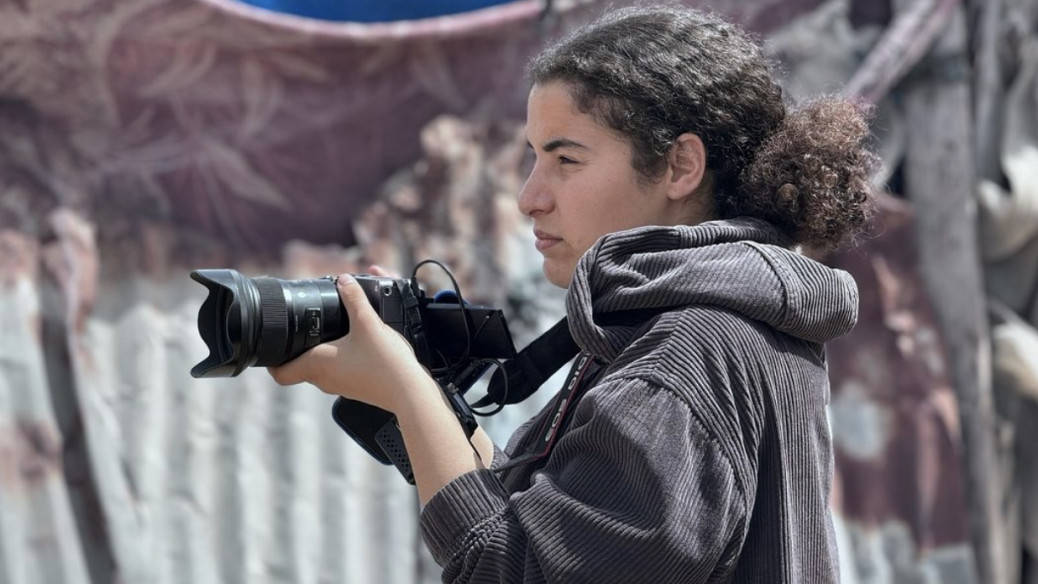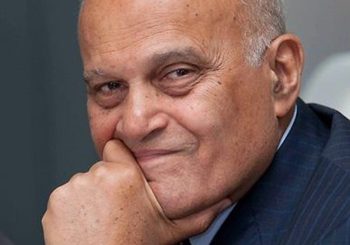“Hi everyone, this is Bisan from Gaza, and I am still alive.”
This is how Palestinian journalist Bisan Owda begins each of her videos. A sentence so simple, yet it has echoed across the world; etched into the minds of millions.
For many of us, it strikes a nerve, stirring a mix of emotions: grief, rage, disbelief. How can it be that a young woman from Gaza is documenting her survival amid the devastation of war, under siege, yet still speaking and standing?
However, the sentence has likely never made it to the spaces where decisions are made; the polished conference rooms where politicians and diplomats debate the futures of people like Bisan. For more than 500 days of war, with over 50,000 lives lost, she has been trying to push her voice through the noise, hoping it might reach those in power. But in those circles, her words are too often unheard.
In a world full of technology and endless ways to connect, one might expect genuine efforts from leaders to bridge the gap between them and those whose voices are hardest to hear. At a time when even virtual reality can place someone in another person’s shoes, if only metaphorically, it seems only natural that decisions would be shaped by lived experiences, not just speeches or official press releases.
But that is not the case. People with lived experience are rarely, if ever, meaningfully included in decision-making or policymaking spaces. The rooms where these decisions are made — summits, conferences, roundtables— are mostly filled with politicians, diplomats, and researchers who have never lived through war, been displaced, or had to survive on a single meal a day.
There is no formal structure and no real obligation to bring those voices into the process.
While there are countless headlines and numbers telling us what is happening in Gaza, knowing is not enough. One must also understand grief, and specifically, Palestinian grief, which did not start with this war.
It is not about thinking through statistics or political narratives. It is about thinking through people’s stories; how they lived, felt and coped, and more importantly, what they actually need.
What makes Bisan’s videos different is that she speaks from lived experience, not as someone repeating headlines or reading from press releases, but as someone who is living the reality every single day.
She sees the situation for what it is and refuses to buy into the idea that the needs of her people are complicated. In one of her dispatches from Gaza, Bisan pushed back against the claim that ending the famine is some kind of complex issue. Instead, she called it what it is: political inaction.
“It doesn’t take a plan to stop a famine,” she said. “It only takes stopping the weaponization of Israel and the fueling of this genocide. It takes real action, such as sanctions, political pressure, and the will to force this to end. It’s as simple as that.”
She criticized how world leaders continue to frame the crisis as a humanitarian puzzle; one that needs endless negotiations and meetings to solve, when in reality, it is the result of political choices by Israel that enable mass starvation.
To explain this deflection, she turned to a Palestinian proverb: “The cat is a camel,” which is a phrase used when something obvious is made to seem complicated on purpose.
“You make it seem like the problem is getting food into Gaza,” she said. “But the real solution is to stop the killing. Instead, we’re made to focus only on how to let in aid, ignoring the root cause: the war itself.”
Bisan also rejected the idea that international aid is some form of generous charity. She made it clear that much of what is reaching Gaza is because of people’s solidarity, not governments’ goodwill.
“The aid entering Gaza is not yours,” she said. “It’s from people’s donations. You are not the saviors. You are not feeding the people of Gaza.”
In another video, Bisan described the aftermath of an Israeli airstrike on a crowded school, an attack that killed more than 20 people, including three of her own cousins, and left the rest of her family with severe burns.
“I spent the entire day running between medical tents, trying to find medicine, doctors, nurses,” she said. “I feel so angry when I hear their screams; the screams of my aunt, my uncles, my cousins.”
Because she speaks from lived experience, Bisan cuts through the noise and goes straight to the heart of the issue. She does not search for loopholes or get lost in over-analysis; she looks at reality as it is and tells it as it is.
When people are removed from the reality on the ground, it is easy to get caught up in political analysis and endless debates, when in truth, the solution is far simpler than it is made to seem in the media.
In the midst of carefully worded speeches and press releases, Bisan’s videos hit like a splash of cold water, cutting through the illusion of political narratives and pulling people straight into the heart of the issue, into the real, lived experiences that define people’s everyday lives.
Before we click on another news article or tune into another speech, we should stop and ask ourselves: Is this grounded in the real lives of people like Bisan and what they are actually going through, or is it detached from the lived realities on the ground, stripped of the voices that matter most?
The opinions and ideas expressed in this article are the author’s and do not necessarily reflect the views of Egyptian Streets’ editorial team.
To submit an opinion article, please email [email protected].







Comments (0)